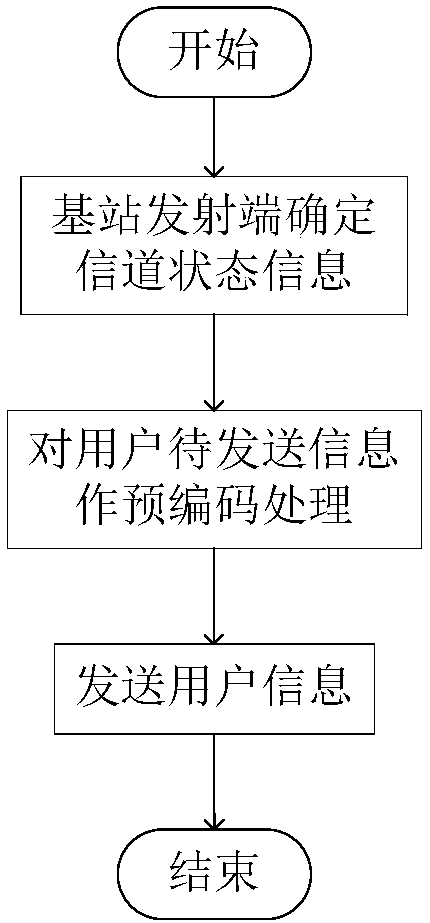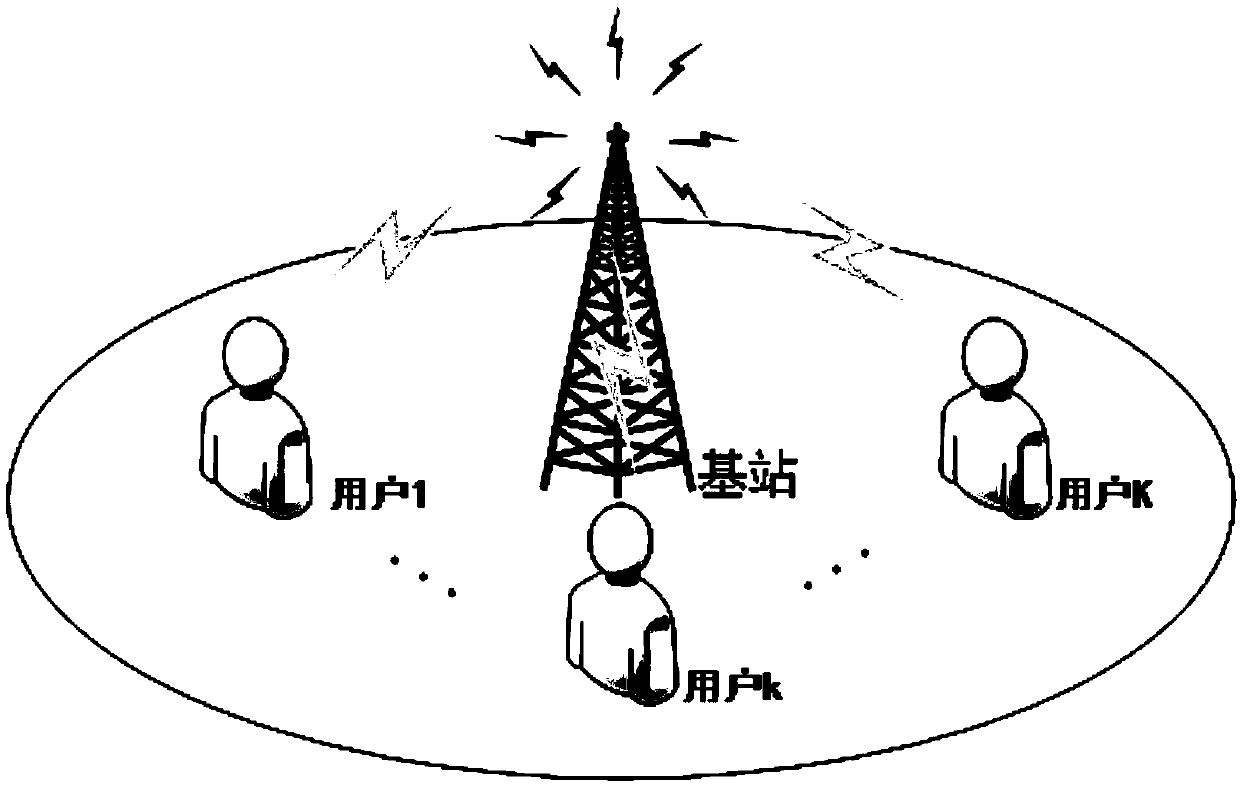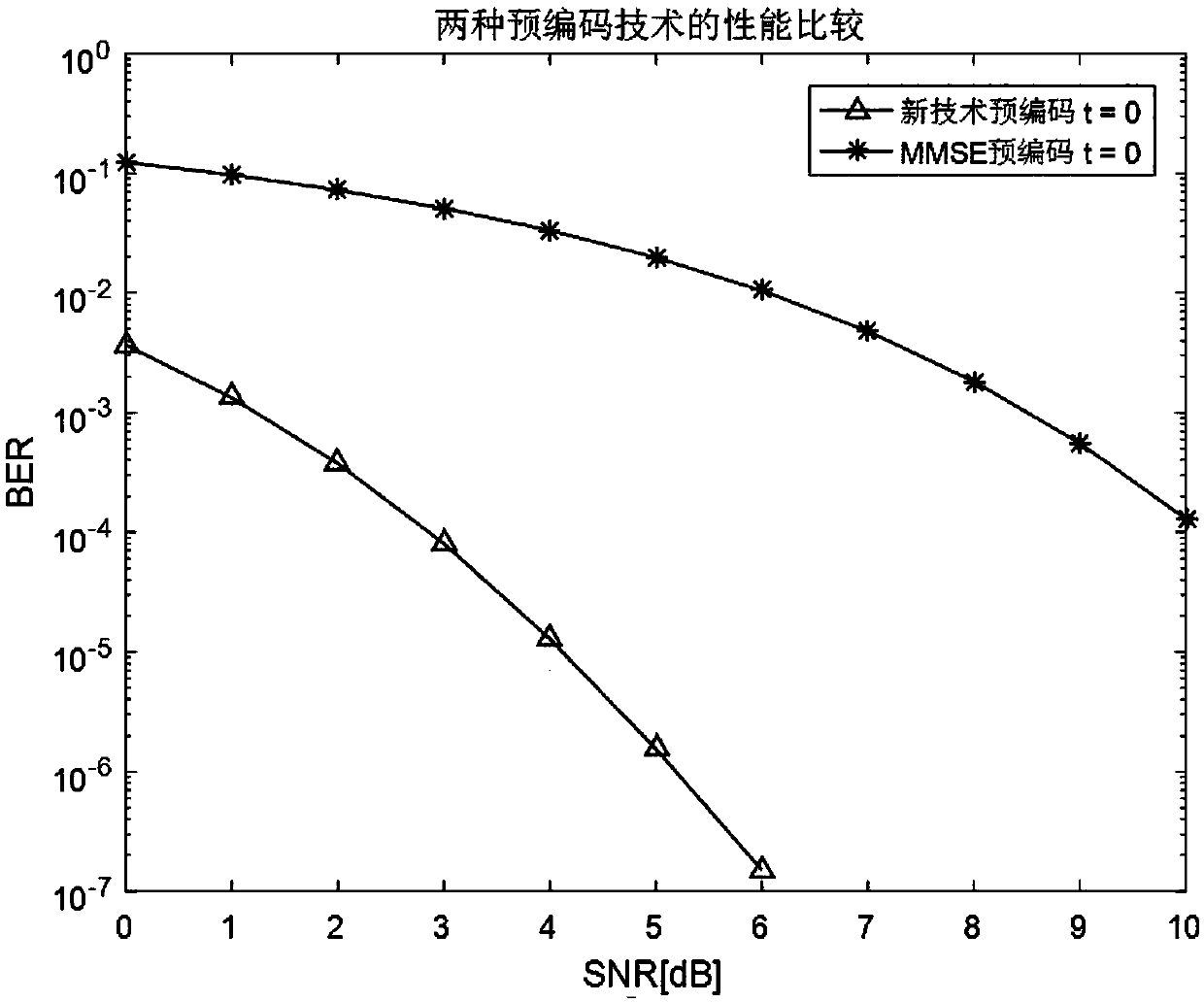Large-scale dipolar antenna based NOMA downlink non-interfering transmission method
A dual-polarized antenna and NOMA technology, applied in polarization/direction diversity, radio transmission systems, transmission systems, etc., can solve problems such as errors, security interference, and time delays, so as to avoid delays and ensure safety Effect
- Summary
- Abstract
- Description
- Claims
- Application Information
AI Technical Summary
Problems solved by technology
Method used
Image
Examples
Embodiment Construction
[0053] The present invention will be further described below in conjunction with the accompanying drawings and specific embodiments.
[0054] Such as figure 1 As shown, the NOMA downlink interference-free transmission method based on large-scale dual-polarized antennas of the present invention comprises the following steps:
[0055] Step 1: start;
[0056] Step 2: The transmitter of the base station determines the channel state information;
[0057] Step 3: The base station performs precoding processing on the information to be sent by the user;
[0058] Step 4: The base station sends information to the user;
[0059] Step 5: End.
[0060] In the present invention, when implementing the method, the network system of the present invention is preferentially constructed such as figure 2 The system schematic diagram shown in the figure shows that the base station is designed to be equipped with M orthogonal dual-polarized antennas, and each user is equipped with an orthogona...
PUM
 Login to View More
Login to View More Abstract
Description
Claims
Application Information
 Login to View More
Login to View More - R&D
- Intellectual Property
- Life Sciences
- Materials
- Tech Scout
- Unparalleled Data Quality
- Higher Quality Content
- 60% Fewer Hallucinations
Browse by: Latest US Patents, China's latest patents, Technical Efficacy Thesaurus, Application Domain, Technology Topic, Popular Technical Reports.
© 2025 PatSnap. All rights reserved.Legal|Privacy policy|Modern Slavery Act Transparency Statement|Sitemap|About US| Contact US: help@patsnap.com



